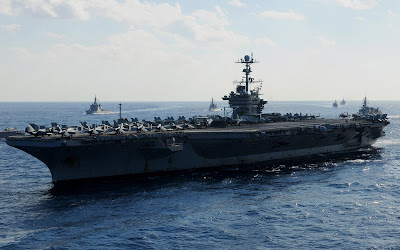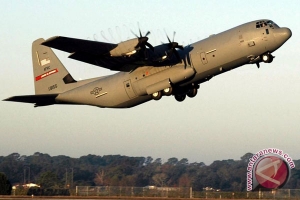By Voice of America on Friday, July 8th, 2011
Russian Prime Minister Vladimir Putin has announced his 
government plans to spend hundreds of billions of dollars on weapons modernization by 2020. In his address to parliament earlier this year, Putin said Russia must be strong enough to fend off any threats from abroad, so missile production will double starting in 2013. Analysts in Moscow say this ambitious plan is intended mainly to preserve the government's domestic and regional influence.
Upgrade
Russia plans to spend $730 billion by 2020 to upgrade and re-arm its military. That's nearly $20 million a day.
The new state arms procurement program includes purchases of eight missile-carrying strategic submarines equipped with Bulava ballistic missiles. Plus 600 aircraft and S-400 and S-500 air defense systems. The arms purchases, both at home and abroad, would allow Russia to raise the proportion of modern weaponry in its arsenal to 70 percent by 2020.
Independent military analyst Pavel Felgenhauer says upgrading the strategic nuclear forces is at the top of the list, but the rest of the military needs a boost as well.
"Then there's of course the air force, the air defense system, the army - actually, everything needs re-arming because right now they say that [only] 10-15 percent of our weaponry is modern," Felgenhauer noted.
Budget increase
As Russia exports weapons worth billions of dollars abroad, the country's armed forces are mostly equipped with outdated Soviet-era weaponry. In the last 10 years the government has increased the defense budget tenfold, says Felgenhauer, but still failed to bring the military up to date.
"Now the present defense minister says that there was massive misappropriation of funds," Felgenhauer added. "The Russian defense industry, which is also downgraded, and its capabilities are much smaller than in Soviet times, responded to more funding by just raising prices. They are producing the same several fighters or missiles, but for a much bigger price."
Foreign threats
Prime Minister Putin says it is necessary to spend billions on re-arming the military due to the need to fend off foreign threats. But while that will demonstrate Russia's military might, analysts say the main goal really is to create more business for the country's military-defense complex ahead of next year's presidential and parliamentary elections.
"Russia has inherited a large military-industrial potential and unfortunately, no real conversion from the military production to the civil production has occurred," noted Yevgeny Volk, a political analyst Yeltsin Foundation in Moscow. "So [the military spending plan is necessary] in order to provide more working places, more jobs, more people involved in this production who are really the electorate for Mr. Putin pending the parliamentary and presidential elections in Russia."
The new proposed arms import plan is expected to come in two stages. In the first, Russia would purchase equipment and licenses, and in the second, it would set up joint ventures with Western arms providers, and begin production of Western-designed weapons systems inside the country.
In post-Soviet Russia, analysts say, "military" mostly means "business" - no matter what ideological wrapping it has

government plans to spend hundreds of billions of dollars on weapons modernization by 2020. In his address to parliament earlier this year, Putin said Russia must be strong enough to fend off any threats from abroad, so missile production will double starting in 2013. Analysts in Moscow say this ambitious plan is intended mainly to preserve the government's domestic and regional influence.
Upgrade
Russia plans to spend $730 billion by 2020 to upgrade and re-arm its military. That's nearly $20 million a day.
The new state arms procurement program includes purchases of eight missile-carrying strategic submarines equipped with Bulava ballistic missiles. Plus 600 aircraft and S-400 and S-500 air defense systems. The arms purchases, both at home and abroad, would allow Russia to raise the proportion of modern weaponry in its arsenal to 70 percent by 2020.
Independent military analyst Pavel Felgenhauer says upgrading the strategic nuclear forces is at the top of the list, but the rest of the military needs a boost as well.
"Then there's of course the air force, the air defense system, the army - actually, everything needs re-arming because right now they say that [only] 10-15 percent of our weaponry is modern," Felgenhauer noted.
Budget increase
As Russia exports weapons worth billions of dollars abroad, the country's armed forces are mostly equipped with outdated Soviet-era weaponry. In the last 10 years the government has increased the defense budget tenfold, says Felgenhauer, but still failed to bring the military up to date.
"Now the present defense minister says that there was massive misappropriation of funds," Felgenhauer added. "The Russian defense industry, which is also downgraded, and its capabilities are much smaller than in Soviet times, responded to more funding by just raising prices. They are producing the same several fighters or missiles, but for a much bigger price."
Foreign threats
Prime Minister Putin says it is necessary to spend billions on re-arming the military due to the need to fend off foreign threats. But while that will demonstrate Russia's military might, analysts say the main goal really is to create more business for the country's military-defense complex ahead of next year's presidential and parliamentary elections.
"Russia has inherited a large military-industrial potential and unfortunately, no real conversion from the military production to the civil production has occurred," noted Yevgeny Volk, a political analyst Yeltsin Foundation in Moscow. "So [the military spending plan is necessary] in order to provide more working places, more jobs, more people involved in this production who are really the electorate for Mr. Putin pending the parliamentary and presidential elections in Russia."
The new proposed arms import plan is expected to come in two stages. In the first, Russia would purchase equipment and licenses, and in the second, it would set up joint ventures with Western arms providers, and begin production of Western-designed weapons systems inside the country.
In post-Soviet Russia, analysts say, "military" mostly means "business" - no matter what ideological wrapping it has






